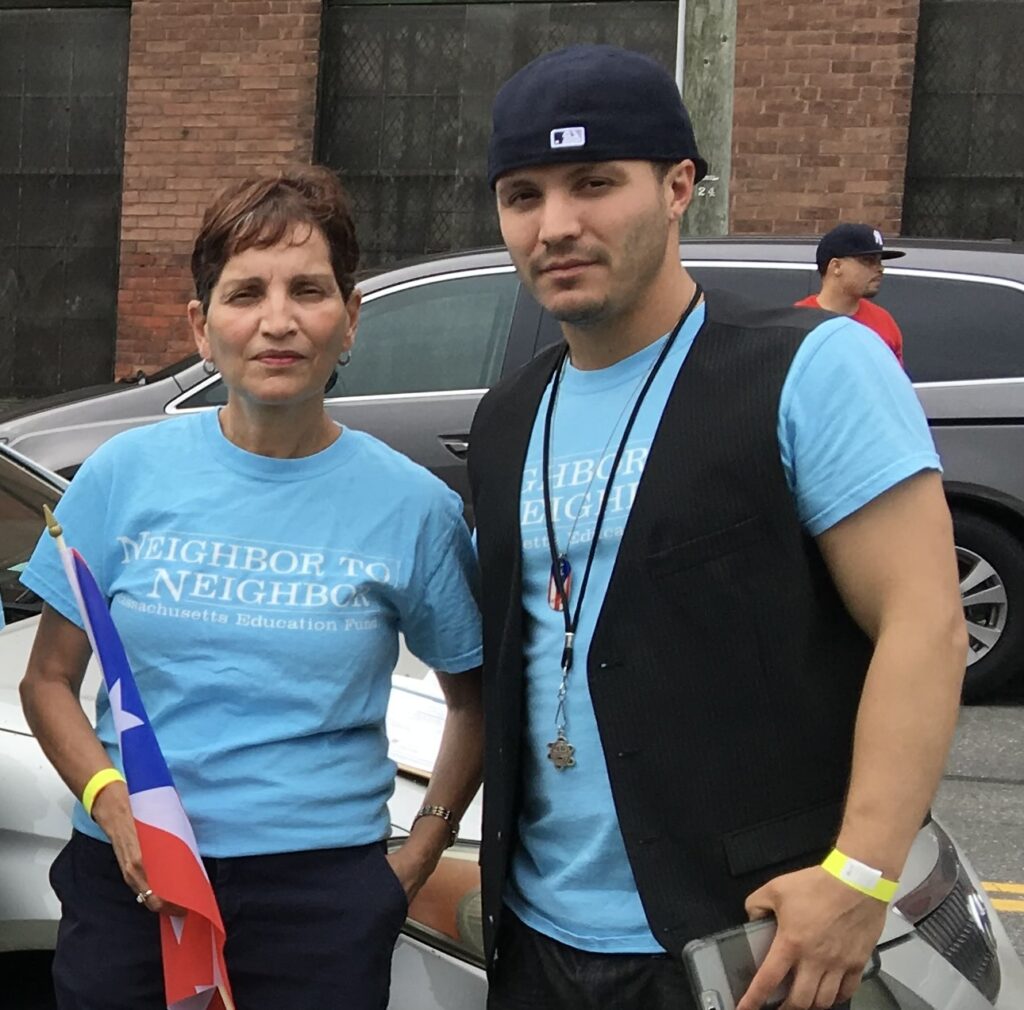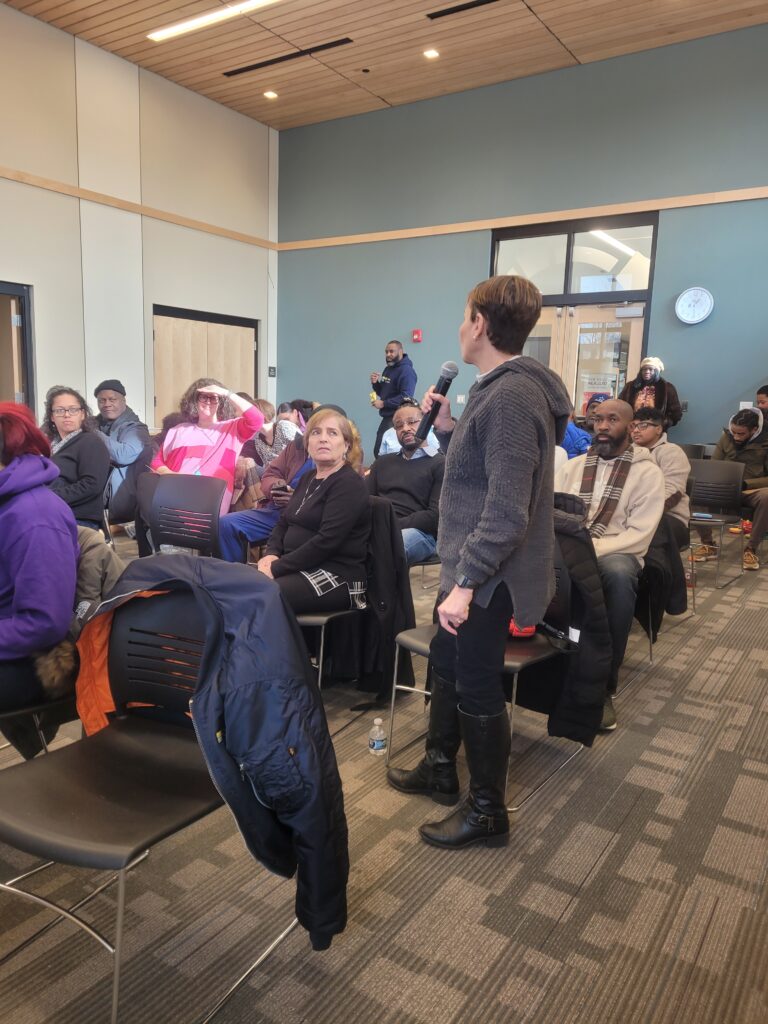Many of you remember Jafet Robles, the legendary Springfield Organizer who was killed in 2017.
What you may not know is that the person carrying on his legacy at Neighbor to Neighbor is Noemi Arguinzoni – Jafet’s mom.
Noemi lives in Springfield. She moved here decades ago from Puerto Rico with her 3-year-old daughter and her 8-month-old son. Noemi had been educated in New Jersey, and she knew that schools in Puerto Rico aren’t as well funded as the one she’d attended. She wanted that for her kids.
But as it turns out, she had a lot of work ahead of her to create the community she wanted for her family.

Noemi first got connected with Neighbor to Neighbor through her work at the Department of Transitional Assistance, where she was a case manager and a supervisor. (She’s since retired.) She’d been involved in union organizing, working for better schools, and showing up at actions with Neighbor to Neighbor. As a social worker, it was her calling.
But she really got involved years later when her son Jafet Robles – the legendary organizer who was killed in 2017 – became the Springfield organizer.
“I had been involved for years, but when my son got involved, he wanted everybody – me, my sisters, my brothers – involved. He was very persistent, he never gave up, so I got involved.”
Noemi Arguinzoni
Jafet found Neighbor to Neighbor independently of his mom, by doing organizing for criminal justice reform of his own. Jafet had previously been incarcerated and this was an issue close to his heart. His community in Springfield meant so much to him, too. It was a natural fit.

One of the most meaningful days for Noemi was also one of the saddest. In 2017, just months after Jafet was killed, Neighbor to Neighbor held a Jafet Robles Lobby Day at the State House. Members rode buses out from Springfield and called on our legislators to continue the work Jafet had started and pass basic criminal justice reforms.
That work resulted in a major win: the repeal of automatic license suspension for people convicted of drug-related crimes.
“When Jafet got out of prison, the fine for him to get his drivers’ license back was $1,000. People can’t afford that,” said Noemi. “They did sign some of the things he had been fighting for.”
“They say that you can kill a person, but not their ideas. You can try to silence someone but their voice will keep on ringing.”
Noemi Arguinzoni
Now, Noemi is a leader on criminal justice reform. Noemi is taking the lead for Neighbor to Neighbor in the No Longer 3/5ths Coalition, a power-building group of community leaders, individual activists and incarcerated people working to restore voting rights in Massachusetts for all incarcerated people.

The coalition’s name references the 3/5ths compromise, which counted enslaved people as 3/5ths of a person when it came to voting rights. With incarcerated people barred from voting, and with most of the people being incarcerated being Black, brown, or poor, the coalition is fighting to stop history from repeating itself.
For Noemi, it’s a way to carry on the work that Jafet started.
“I’m still here even though he’s no longer here. He taught me a lot. I’m proud of him.”
Noemi Arguinzoni
Noemi says we need to change the way that people think about people who have been incarcerated.
“People start thinking that people who are incarcerated or who have been incarcerated stop being human. They don’t see what gets them there,” said Noemi. “Mass incarceration is mostly of Black and Brown or people who are not privileged, the poor. If we believe in equality, let’s live like that.”
But, when you take away people’s voting rights, you send a different message. It’s supposed to be one person, one vote. But if they take away your vote, what does that say about you?
Noemi says that making life better for people who have been incarcerated makes our communities safer and stronger. If you want to stop crime, you have to stop treating people like they’re less than human. You have to have an education system that regards every child equally, regardless of zip code.
“Everything is connected,” said Noemi. “This will make safer communities. It’s a benefit to everyone.”
